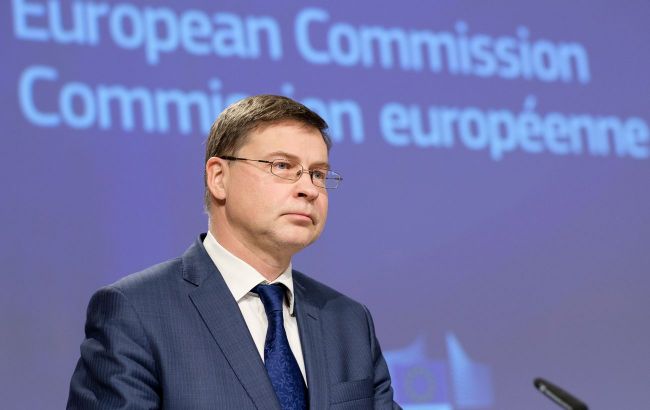EU starts preparing 14th package of sanctions - Vice President of European Commission
 Photo: Valdis Dombrovskis, Vice President of the European Commission (Getty Images)
Photo: Valdis Dombrovskis, Vice President of the European Commission (Getty Images)
The European Union has begun preparing the 14th package of sanctions to be adopted this spring, according to the European Commission.
"We have started preparing a 14th sanctions package, which should be adopted in spring. It is likely to include an extensive list of restrictive measures with a strong anti-circumvention angle – in the maritime sector, for example, as Russia continues to try and violate the price cap for its oil exports," states Executive Vice-President Valdis Dombrovskis.
He noted that the EU is also looking for a way to stop the circumvention of sanctions through Western subsidiaries operating in countries outside Europe.
"From the EU perspective, EU parent companies that retain influence over the business operations of their overseas subsidiaries can incur responsibility for operations undertaken by those subsidiaries," added Dombrovskis.
The Vice President of the European Commission also emphasized that the EU will continue to put pressure on Russia and on those who support it on the battlefield, wherever they are.
"We will continue going after Putin's cronies. And we will continue to go after those helping Russia to circumvent sanctions or replenish its war arsenal," he said.
EU sanctions against Russia
Since the beginning of the full-scale invasion, the European Union has regularly imposed sanctions against Russia for its aggressive war against Ukraine. Restrictions are imposed on Russian officials, oligarchs, economic sectors, companies, and defense enterprises of the aggressor.
On February 23, 2024, the EU adopted the 13th package of sanctions against Russia. The European Council decided to impose restrictive measures against another 106 individuals and 88 legal entities.
Ukrainian President Volodymyr Zelenskyy also called for strengthening sanctions against Russia. According to him, the Kinzhal air-launched ballistic missiles that Russia is firing at Ukraine contain dozens of foreign components.
Recently, the ministers of agriculture of Lithuania, Latvia, Estonia, Poland, and the Czech Republic proposed to the European Union to ban the import of grain from Russia and Belarus.

